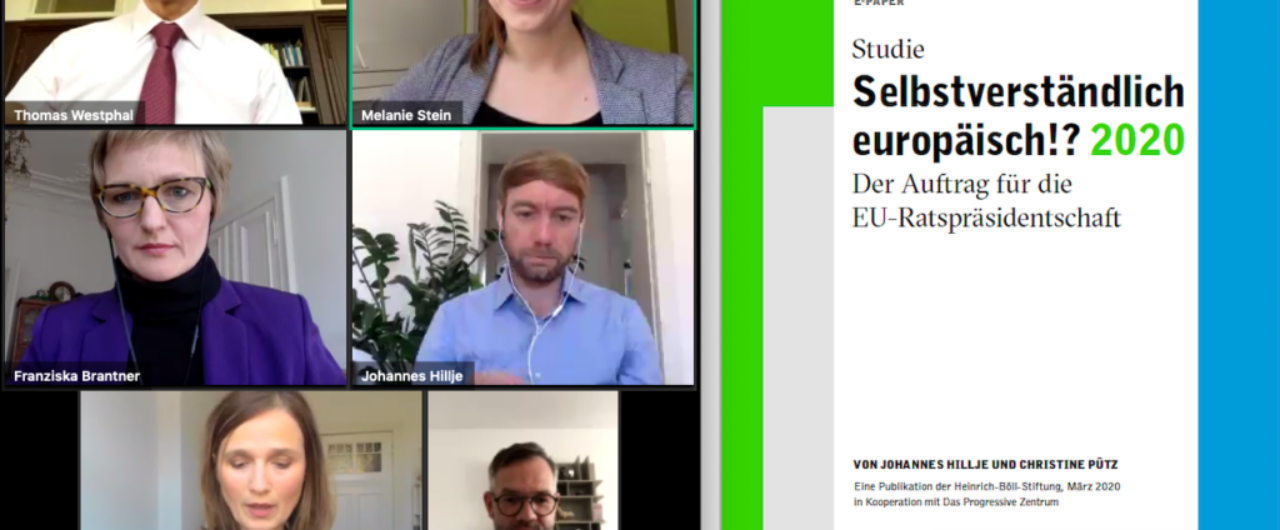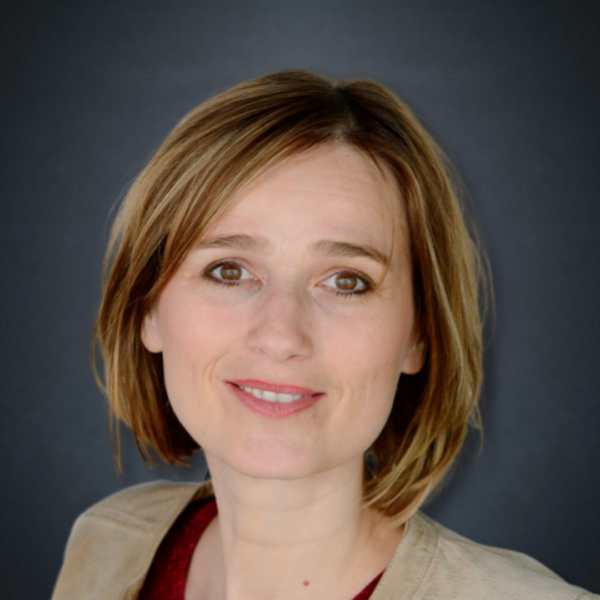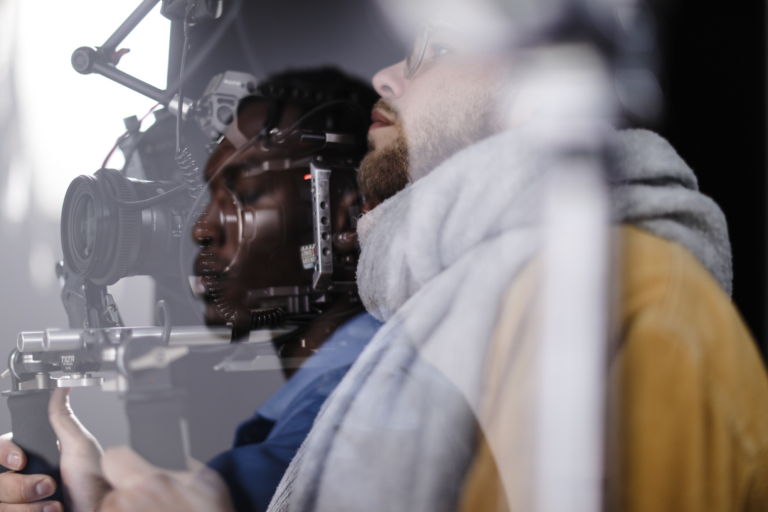Just under 100 days before the start of the German Presidency of the Council of the European Union, the Heinrich-Böll-Stiftung and Das Progressive Zentrum presented a study on the German populace’s expectations of the German Presidency of the Council of the European Union and how they perceive themselves as Europeans. Michael Roth, the German Foreign Office’s State Minister for Europe as well as Green Party Member of Parliament Franziska Brantner stood up for European solidarity in times of crisis. However, they each had a different assessment of the current state of affairs.
On 1 July, Germany will assume the Presidency of the Council of the European Union. It is expected that the German Federal Government will introduce its political program for the Presidency in June. To hold an informed debate on legislative priorities, the Heinrich-Böll-Stiftung and Das Progressive Zentrum representatively polled the perceptions of the population.
“With this data, we can show what is important to the German populace apart from managing the coronavirus pandemic. These other challenges will not remain frozen in time; they will in part only get worse because of the pandemic”, argued co-author Johannes Hillje on the unique benefits of the survey, which was completed before the outbreak of the pandemic.
The Das Progressive Zentrum Policy Fellow of Das Progressive Zentrum presented the results from the study “Actually European?! 2020” together with co-author Christine Pütz from the Heinrich-Böll-Stiftung in front of 100 video conference participants. Michael Roth, the German Foreign Office’s State Minister for Europe, and Franziska Brantner, the Green Party’s Spokeswoman for Europe, as well as Thomas Westphal, Department Head of European Policy for the German Ministry of Finance, all commented on the findings.
Watch the Video Conference
The most important results of the representational poll
Johannes Hillje and Christine Pütz presented the five core findings:
The EU approval rate has gone back to its normal level
The European Union approval rate has gone back to its normal level, after the euphoria of the 2019 European elections: in 2020 67.3 per cent of the Germans saw more advantages than disadvantages of being a member of the European Union, compared to 2019 when it was just under 75 per cent. 50.9 per cent believed that Germany’s financial contribution is adequate or too low (2019: 60%); 46.7 per cent believe it is too high.
Participants wish for cooperative German European Policy
A clear majority of over 70 per cent of Germans want an active and cooperative German representation in the European Union.
Climate and environmental protection is topic number one of the participants
For the Presidency of the Council of the European Union, the citizens want the Federal Government to achieve progress within the areas of Climate and Environmental Protection (41.3%), Immigration and Asylum (38.6%) as well as Rule of Law and Democracy (30.1%). When it came to concrete policy proposals, the implementation of a European Union Digital Tax led the way (39%), followed by the expansion of the 2030 EU Climate Goals (33.2%) and the creation of a European Union Army (27.1%).
A narrow majority does not find the German EU contribution too high
A narrow majority of 50.9 per cent did believe that Germany’s financial contributions to the EU have not been too high. 46.7 per cent thought the opposite.
Expenditure in certain policy fields should be increased
95.5 per cent of the Germans approved more shared expenditures between Germany and EU partners in specific policy fields. At the top of the citizens’ agenda were the topics of innovation and research (43.8%), climate and environmental protection (40.5%) as well as social security (34.4%).
By comparing the citizen’s perception of the role of Germany in the EU with the current administration’s policy, according to the authors, the following three conclusions can be made:
- The Federal Government should fulfil the expectations of the citizens and EU partner countries. The Presidency of the Council of the European Union offers the opportunity to address the promised “Fresh Start for Europe” that was laid out in the grand coalition’s agreement. Germany should not back away from difficult topics such as asylum policy or the rule of law during the six months.
- The European Union budget needs a shared vision: this poll showed that Germans do not see themselves as “Europe’s purse”. Instead of speaking only about abstract numbers in the debate on the multiannual financial framework (MFF), the MFF debate should be centred much more on political goals. “Numbers will never bring enthusiasm out of people — this is true for both the national and the European level. However, people can get very excited about concrete visions”, emphasised Christine Pütz during the discussion.
- Germany should contribute more to the socio-ecological transformation. At the time of the polling, this was the most important agenda topic for the citizens. The European Union climate transition should be better financially equipped, especially the “Just Transition Fund”, which supports German coal regions, among other initiatives.
High Expectations for the German Presidency of the Council
State Minister Michael Roth recognised during the debate that the expectations of the Germany Presidency of the Council are immense. He pointed out that especially in disputed policy areas, a shared understanding between the national administrations on the correct approach has not yet been attained.
An example of this would be the missing development of Asylum and Immigration policy based on solidarity. However, the administration will not back away from this challenge. “The German Presidency of the Council of the European Union will expect a great deal from our partners”, according to the State Minister, but it will be essential to be aware that: “much that is considered as second nature in our circles, is highly controversial in the European Union.”
The Coronavirus is putting European solidarity to the test
The coronavirus pandemic also is putting European solidarity to the test. Both Michael Roth and also Thomas Westphal emphasised the series of steps that the German Federal Government addressed, to enable European wide coordination of the measures against the Coronavirus.
On this issue, the State Minister answered confidently: “We have shown that parliamentary democracies during times of difficult crises are capable of acting, agreeing on far-reaching decisions, all while without needing to act as an authoritarian regime or dictator.”
Franziska Brantner, however, assessed the previous measures of the German Federal Government regarding the European dimension of the crisis as unsatisfactory: “I also hope and call for a Germany that shows solidarity. Here, it is in our very own interest to collectively help”. Until now, the answer to the Coronavirus has been too nation state-centric. “If there is something that we have learned from the 2008/09 economic crisis, it is that we need active European solidarity”, according to the Member of the German Parliament.
State Minister Michael Roth gave assurances that the German Federal Government does not intend to abandon the other Member States of the European Union, in fact, the contrary: “we cannot penalise any country, for having different economic and social conditions than us in Germany. Corona affects everyone. […] We should tackle these topics in a less judgemental and non-ideological way.
To lead this German Presidency of the Council of the European Union to success, much time was invested in the preparation of the Trio Presidency of the Council of the European Union. “We coordinated on our focus areas with Portugal and Slovenia”, Michael Roth declared.
The author of the study Johannes Hillje encouraged the German Federal Government to take advantage of the rare opportunity to use the Presidency of the European Union Council and to fulfil the expectations of the Germans and Europeans: “The capability of Europe is closely linked to Germany’s willingness to act. If Germany is ready to proceed, then it is also in the position to bring other countries with it.”
About the Study “Actually European?! 2020”
The study “Actually European?! “ is a yearly poll on how the Germans perceive themselves within the European Union, which was expanded this year to include questions on the Presidency of the Council of the European Union. The publisher is the Heinrich-Böll-Stiftung in cooperation with Das Progressive Zentrum.
In addition to the video conference participants, an array of media discussed the results of the study. Der Spiegel reported on a “stable, fundamental trust” that the Germans would bring to the European Union. Das Handelsblatt focussed on the German approval of the increased European Union expenditures in particular policy fields. In an interview with the ARD Brussels Studio, co-author Johannes Hillje discussed the question of why the approval of the European Union in comparison to the 2019 poll had decreased. Additionally, the DPA (Deutsche Presse-Agentur) published a report “Poll: every second person in Germany does not think the EU contributions are too high”, which was picked up by Focus.de, the Berliner Morgenpost and a range of other online portals.
The previous study was published under the title “Vom Zahlmeister zum Zukunftsmeister“, in 2019 and captured the self-image of the Germans in the European Union.










